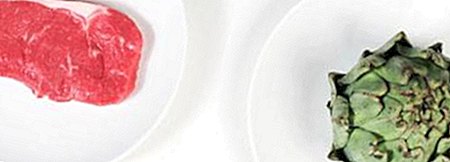Meat or vegetarian? What's better for the carbon footprint?

In many minds holds the thesis that vegetarian life is good for the climate. Scientists at the University of Oxford wanted to know exactly and looked into Britain for who really leaves a smaller carbon footprint - vegetarians or meat eaters?
Background: The footprint is a measure of the proportion of carbon dioxide emissions produced during food production. Cows play a crucial role here. The methane that they excrete increases emissions worldwide. Meat eaters are therefore partly responsible. Vegetarians, however, when they eat cow's milk products. So exciting, who harms the climate more.
The researchers now studied the eating behavior of different groups: high, medium and low-meat eaters, pescetarians (vegetarians who eat fish), vegetarians and vegans.
The result: All meat eaters had a lower carbon footprint than vegetarians. Vegans had - as expected - the smallest carbon footprint. Between much-meat eaters and vegans are even 60 percent less greenhouse gases. It is noticeable that the difference between many and little meat eaters is very large, while the gap between little meat eaters and vegetarians is small. It is barely worth mentioning between Pescetarians and vegetarians.
Is the claim that vegetarians burden the climate with cheese and other dairy products exaggerated? No, say the scientists. Who eats a lot of dairy products, harms the climate. For the study, however, they looked at how much cheese and other dairy products vegetarians actually have on their diet and found that the proportion is not excessive.
Try it - vegetarian recipes to enjoy
ImgShow










